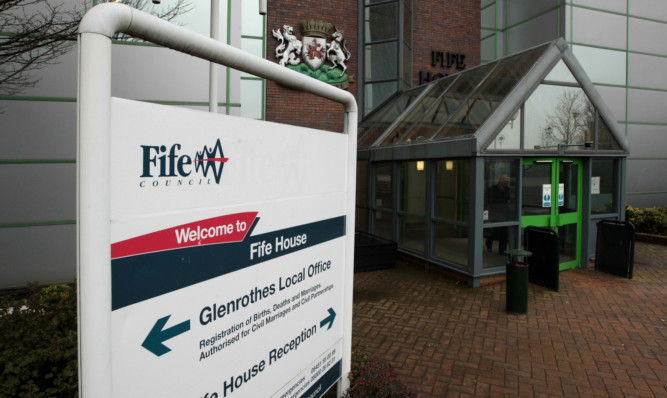An independent Fife councillor who holds a senior position on Fife Council’s executive has warned public services are “creaking at the seams” and believes higher taxation could be inevitable.
Cupar councillor Bryan Poole, Fife Council’s executive spokesperson for education, said it was clear “huge challenges” lie ahead if services are to be maintained, with difficult choices to be made about which services are retained.
The stark realities of a £100 million funding gap facing Fife Council over the next three years were highlighted by Mr Poole in a presentation to Cupar Community Council.
His comments came just days after he called for a national debate about what kind of society we want to live in.
In an interview with The Courier this week, he said society seemed to have a demand for “Rolls-Royce services” but was only willing to pay “Morris Minor taxes”.
In his latest presentation to community councillors, Mr Poole warned stark choices had to be made. “Public services are creaking at the seams and struggling but it’s not just Fife Council,” he said.
“I read reports about the health service in Fife and how it’s coping with the financial climate we’re now in.
“The fact is that money is being taken out of the public sector in huge, huge dollops. The last Fife Council administration took a lot out which I supported, I might add and saved millions from their budget. But you can’t take money out of public services and not expect it to have an impact.
“Councillors need to make £100 million worth of savings in the next two or three years. To take that money out and continue the same services is just not possible.
“But there are also myths about public spending. For example, it’s been said that Fife Council’s new chief executive (Steve Grimmond) gets higher pay than the Prime Minister, David Cameron. Well, that’s just not true.
“It’s also a myth that it’s just frontline staff that are being cut and yet plenty of managers are also taking severance packages. The reality is that Fife Council employees, including many on relatively low wages, have effectively had a pay freeze for five years.
“The public need to realise that there are choices to be made. There needs to be an understanding of the wider context facing Fife Council’s budgets. I have responsibility for education, which could be regarded as something of a poisoned chalice right now. The education budget could lose £42 million over the next three years.
“We can all sit here and criticise individual suggestions for savings but the reality is that if the budget goes down then cuts have to be made accordingly. Fife Council is trying, to the best of its ability, to manage this.”
Mr Poole added: “As a society, we have to look at different ways to deliver public services or raise taxation.”
Fife Council’s Labour leader, Councillor Alex Rowley, this week pledged to publish every budget option, as the local authority struggles to bridge the £100 million funding gap.
The infamous “blue book” detailing advice from council officers on the likely impact of all savings they have put forward for consideration has been at the centre of controversy lately.
Now, Mr Rowley is asking for cross-party cooperation to agree a way forward for publishing all the savings proposals being brought forward to balance the council’s books.
As local authorities across the country struggle to maintain the level of amenities they provide, there is concern that many services could simply disappear.
